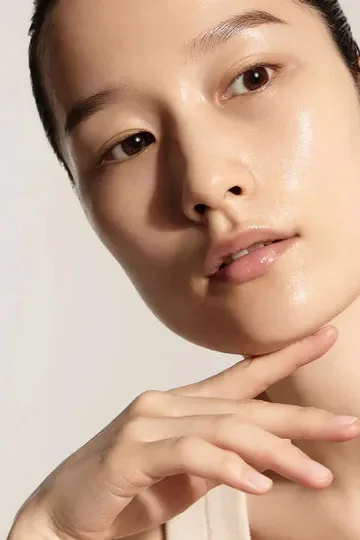Living in the UK
A less-pressurized life with a newly appreciated quality of air
April, 2025
Of course, being English myself with a history of my family name (ironically, ‘English’) going back hundreds of years in the Cambridgeshire & Suffolk counties, I do feel a sense of returning to my homeland whenever I go back to the UK. The language, familiarity of my surroundings, and of course, seeing old friends & family never go unappreciated. However, like most countries in the 21st century, the UK has changed monumentally since New Year’s Eve 1999. Having lived away from the country for long periods of time, it does feel like I am visiting a place that is not home anymore in spite of having lived there most of my life.
I lived in two different towns in Cambridgeshire until I moved to south-east London shortly before my 21st birthday. I then started travelling & working in China in my late 20s. I have been back and forth from East Asia to England ever since.
Good old British architecture
Aside from obvious things such as friends and family, there are several things I miss and enjoy about living in the UK. To begin with, the architecture and in particular, old buildings and country cottages. There is a sense of spirit and character about these dwellings that give off a feeling of history and homeliness. The smell of the old, wooden structures and furniture in my late grandma’s old house; it used to make me feel like I was going back in time to a land before the digital age.
(my grandma’s old house in Cambridgeshire, middle)
I liked living in rooftop apartments in Korea before I eventually moved into a modern apartment complex in Gyeonggi Province. Although apartments in Korea are very convenient and comfortable, the unique nature of old-fashioned British housing cannot be replicated from my point of view. The only downside being the extra costs of maintenance and other problems such as heating, cracks in the walls, etc. Towns and cities in the UK still largely have buildings, structures, and relics from the past going back hundreds, sometimes thousands of years. Cathedrals, Churches, pubs and old-fashioned housing still remain. Though naturally, more of these spiritual buildings disappear as the years go by. In recent decades, bungalows have emerged as convenient one-floor homes that are more affordable and easier for disabled people to use. In addition, modern flats and apartment buildings have emerged, particularly in the cities.
A street of bungalows in Cambridgeshire
(street in London)
(Ely cathedral)
(morning coffee on a rooftop apartment in Seoul)
Nothing beats morning coffee in the garden…or in this case, on the rooftop.
Good air days
As you can see in some the photos, I managed to take these shots on nice, sunny days (not as rare as you think in the UK, or at least not in 2024). Having experienced living in China and South Korea, it has been virtually impossible not to notice the difference in air quality between the UK and these two countries. Although London still has rare instances of bad air pollution, unfortunately, South Korea has a bigger challenge in tackling fine dust particles across the peninsula. As a person that is mindful of the natural environment around me, I have come to appreciate good air days in Korea. I can usually judge a ‘good air day’ without looking at my smartphone and just simply looking out the window and noticing if I can clearly see the distant mountains in the background.
(Top, an exceptionally ‘good air day’ with a mountain visible and below, a day with ‘moderate’ air pollution & fine dust levels in Gyeonggi Province, Korea.)
Probably the freshest air I ever breathed was in the east coast of Scotland. I cannot quite describe the feeling, but it resembled a natural cleanse of my lungs while feeling hydrated and energized at the same time.
(east coast of Scotland)
It may sound simple and dull, but after having lived in an environment where fresh, clean air is quite scant, I have come to appreciate British air quality a lot.
Less ‘pressure’ in British society compared to South Korea or is it just me?
Many people in society can feel a sense of pressure to be a certain way, in order to be perceived by others that satisfies the individual concerned. Traditionally in the past, both men and women in the UK & South Korea had mostly similar standards to meet in order to come across as accepted members of society (i.e., men: get a stable job/career, get married, women: get married and be a housewife, both: have kids, stay married, etc). Both countries have kept some of this culture, but people are pretty much free to make their own choices far more liberally than before, though of course, it varies. In my experience, British men can still be quite competitive regarding income, assets, etc. But Korean men seem to have more pressure to earn stable salaries working in solid company jobs in order to meet what can be a really judgmental society in Korea. In this sense, I naturally prefer the culture in the UK. Women in the two countries have the challenges of balancing careers with gender pay gap matters, opportunities, etc. Korean women in particular often have to deal with a different level of body standards, that even foreign women living in Korea cannot escape. Even when watching Korean dramas or TV shows, the skincare of Koreans (old & young) is frighteningly impeccable.
Korean Actor Kim Jae-Won
Picture: British Vogue
I have experienced less judgmental comments about my social status from people living in the UK compared to South Korea. But I also do not really feel the pressure of being a certain way here in South Korea either. As a foreigner, I can put that down to not being considered Korean, though I still sometimes get the odd ‘interrogation’ from meeting new people here.
In the end, I feel blessed to have good family, friends, and contacts in both countries. It is not certain where I will end up living permanently in the future. But due to my simple nature, I am quite certain that so long as I have my health (the single, greatest asset one can have in my opinion), I can be happy in both countries with the experience and skills that I have.










